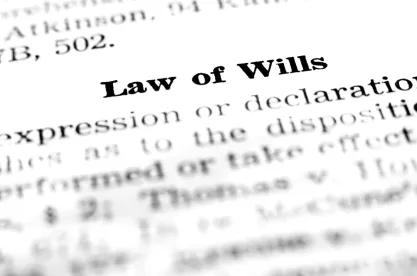In general, a codicil to a Will is an amendment to a last will and testament. A codicil can amend a Will in numerous different ways. For instance, it can change the amount of any bequests left under a Will and who will receive said bequests. It can also change who is to serve as the executor of the estate, or other issues related to the administration of the estate. Finally, its purpose may be to add a personal property distribution list. In essence, a codicil to a Will can amend virtually all of the terms of a last will and testament. Often, a person will simply seek to sign a new last will and testament in lieu of a codicil, however, there is nothing improper about utilizing a codicil to effectuate an amendment to their estate plans.
The purpose of this blog is to discuss a potential challenge to a codicil of a Will, as compared to a Will contest. Frankly, there is little difference in the available grounds pursuant to which a party may seek to invalidate a codicil to a last will and testament. In general, a party seeking to invalidate a codicil to a Will may assert that the codicil was improperly executed, that the decedent lacked capacity to execute the codicil on the date it was executed, or finally that the decedent was subjected to undue influence by another individual which caused the decedent to execute the codicil.
Lack of capacity means that the decedent was not mentally competent on the date the codicil was executed. A claim of undue influence means that a third party exerted improper influence over the decedent to execute the codicil such that it represents this third party’s desires and wishes rather than the true intentions of the decedent. Finally, a challenge as to the improper execution of the codicil relates to whether it meets the statutory requirements to be a binding and valid instrument. Each one of these claims may be brought to challenge a codicil in essentially the same fashion as they would be during a Will contest.
Should a party successfully challenge a codicil to a Will, the codicil will be deleted and the court will require that the Will be probated in accordance with its original terms absent the proposed codicil. As such, when challenging a codicil the contestant must be concerned as to the potential consequences. As a result, it is not uncommon for both the last will and testament and the codicil to be challenged at the same time. Prior to initiating an action to challenge a codicil, it is suggested that a party consult with an attorney to determine the consequences if the codicil is invalidated, and how this may affect the ultimate distribution of the estate.



 />i
/>i
